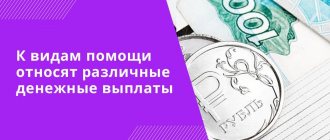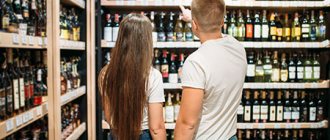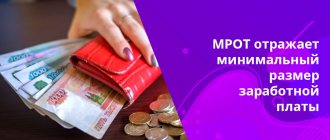The sale of alcoholic beverages is one of the most profitable areas of retail trade in the Russian Federation.
However, you need to keep in mind that the sales of alcohol includes many restrictions provided for by law. To start selling alcohol, you need to obtain a number of special documents.
Questions about selling alcohol? Join our VKontakte group dedicated to EGAIS.
Starting a trade in low-alcohol drinks is much easier. It is allowed to sell beer as an individual entrepreneur; in addition, you do not need to obtain a license to do this.
What kind of alcohol can you sell without a license?
An unlicensed retail outlet may sell:
- beer;
- beer drinks;
- cider, poire;
- mead.
Restrictions on the sale of alcohol to consumers
Strict requirements relevant for 2021 apply not only to alcoholic products, but also to the place of sale, as well as to the seller himself.
Any alcohol-containing product must be accompanied by the following information available to the consumer:
- Product Name.
- Price.
- Name of the country where the product was produced.
- Alcohol certification information.
- Information about state standards to which the products comply.
- Volume.
- Compound.
- Content of harmful substances and their volume.
- Alcohol content percentage.
- Information about the dangers of alcohol.
Also in the Russian Federation there is a ban on the sale of alcohol-containing products in the following places:
- On the territory of educational, medical or cultural institutions (regardless of the form of ownership).
- In sports facilities.
- In wholesale and retail markets.
- In all types of public transport, as well as train stations, bus stops, airports and gas stations.
- In places where military units are stationed.
- In places that are close to sources of increased danger.
- In crowded places.
- In retail outlets that are not stationary.
Prohibitions on the sale of alcohol-containing products include:
- Prohibition on the sale of alcohol to persons under 18 years of age.
- Trading without the appropriate license.
- Remote trading.
- A ban on the sale of alcohol without an up-to-date list of products.
- In plastic containers with a volume of more than 1.5 liters.
Do you think it is necessary to continue to limit the hours for the sale of alcohol?
Yes, this allows you to reduce the amount of alcohol consumed Yes, especially on weekends and holidays No, the ban does not make sense, since people buy alcohol in advance
Alcohol sales hours in Russia
The time for the sale of alcohol in the Russian Federation is limited at the legislative level. At the federal level, the ban is set for the period from 23:00 to 8:00 the next day. Thus, the ban applies to night time.
At the same time, local legislative bodies have the right to establish other time frames for the ban on the sale of alcohol-containing products. Local regulations may exercise the right to change the time frame for the sale of alcohol only upward. It is impossible to reduce the gap established at the federal level.
Table of time restrictions relevant for 2021
| Name of the region of the Russian Federation | Prohibition time for the sale of alcohol during normal hours (weekends and holidays) | |
| Beginning of period | End of period | |
| Moscow | 23:00 | 8:00 |
| Moscow region | 23:00 | 8:00 |
| Saint Petersburg | 22:00 | 11:00 |
| Republic of Adygea | 22:00 | 11:00 |
| Karachay-Cherkess Republic | 21:00 | 11:00 |
| Ivanovo region | 21:00 | 9:00 |
| The Republic of Dagestan | 20:00 | 10:00 |
| Nenets Autonomous Okrug | 20:00 | 11:00 |
| Chukotka Autonomous Okrug | 20:00 | 11:00 |
| Tambov Region | 21:00 | 8:00 |
| Tyumen region | 21:00 | 8:00 |
| Vladimir region | 21:00 | 9:00 |
| Irkutsk region | 21:00 | 9:00 |
| Novgorod region | 21:00 | 10:00 |
| Lipetsk region | 21:00 | 9:00 |
| Kirov region | 21:00 (23:00) | 9:00 (8:00) |
| Amur region | 21:00 | 11:00 |
| Pskov region | 21:00 | 11:00 |
| Jewish Autonomous Region | 22:00 | 11:00 |
| Krasnodar region | 22:00 | 11:00 |
| Komi | 22:00 | 8:00 |
| Ryazan Oblast | 22:00 | 8:00 |
| Sakhalin region | 22:00 | 8:00 |
| Sevastopol | 22:00 | 8:00 |
| Bryansk region | 22:00 | 8:00 |
| Arhangelsk region | 22:00 | 8:00 |
| Saratov region | 22:00 | 10:00 |
| Astrakhan region | 21:00 | 10:00 |
| KHMAO-Yugra | 20:00 | 9:00 |
| Primorsky Krai | 22:00 | 9:00 |
| Leningrad region | 22:00 | 9:00 |
| Nizhny Novgorod Region | 22:00 | 9:00 |
| Altai region | 23:00 | 10:00 |
| Republic of Crimea | 23:00 | 10:00 |
| Murmansk region | 21:00 | 11:00 |
| Kaliningrad region | 22:00 | 10:00 |
| Kaluga region | 22:00 | 10:00 |
| Tomsk region | 22:00 | 10:00 |
| Tver region | 22:00 | 10:00 |
| Udmurtia | 22:00 | 10:00 |
| Magadan Region | 22:00 | 10:00 |
| Chuvash Republic | 22:00 | 10:00 |
In Bashkiria, Karelia, Transbaikalia and other regions of the Russian Federation, alcohol is sold in accordance with federal requirements - from 8:00 to 23:00.
Peculiarities of alcohol sales during holidays, including New Year's
Also at the legislative level there is a ban on the sale of alcohol or other restrictions on certain holidays.
| Name of the holiday | Restrictions |
| Knowledge Day (September 1) | A complete ban on the sale of alcohol-containing products in some regions, including Moscow, St. Petersburg, Volgograd region, etc. |
| Children's Day (June 1) | Complete ban on the sale of alcoholic beverages |
| Student's Day (November 17) | Most regions of the Russian Federation have introduced a ban on the sale of alcohol on this day |
| Youth Day | A ban on the sale of alcohol-containing products has been introduced in 28 regions of the Russian Federation |
| Last call (May 25) | Prohibition on the sale of alcohol |
| May 1 and 9 | In a number of regions, a complete ban on the sale of alcoholic beverages has been introduced due to large-scale events. |
| Day of the city | In most regions it is also a day on which the sale of alcohol is prohibited |
Also in some regions of the Russian Federation there is a ban on the sale of alcohol-containing products on Russia Day, Day of Sobriety, Day of National Unity, as well as on July 8 - the Day of Family, Love and Fidelity.
There are also local restrictions, in particular, in St. Petersburg it is prohibited to sell alcohol on the alumni holiday - Scarlet Sails, which traditionally takes place on June 20.
Sale of alcoholic beverages to minors
Read
Liability for driving while intoxicated
More details
What are the penalties for drinking alcohol in a public place?
Look
What do you need to sell strong alcohol?
Only legal entities can sell strong alcoholic beverages in the Russian Federation. Therefore, the first step is to go through the LLC registration procedure.
The only suitable tax regime for the sale of alcohol is OSNO (general taxation system).
OKVED codes for alcohol trade:
47.25.1 - retail sale of alcoholic beverages, including beer, in specialized stores 47.25.11 - retail sale of alcoholic beverages, except beer, in specialized stores 47.25.2 - retail sale of soft drinks in specialized stores 47.25.12 - retail sale of beer in specialized stores stores
Second step
– obtaining a license to sell alcoholic beverages.
Who can sell alcohol
In accordance with Federal Law No. 171, only those companies that have received the appropriate license can sell alcohol.
There are additional requirements for applicants:
- they must own suitable premises for the storage and sale of these products;
- have a cash register.
The right to issue licenses for the sale of alcohol belongs to the Federal Service for Regulation of the Alcohol Market.
License for retail sale of alcoholic beverages
How to obtain a license to sell alcohol:
1. Make sure that the conditions are met.
Requirements for the sale of alcohol are listed in Article 16 of Federal Law No. 171 “On state regulation of the production and turnover of ethyl alcohol, alcoholic and alcohol-containing products and on limiting the consumption (drinking) of alcoholic products” (as amended on December 27, 2019).
Basic requirements for selling alcohol:
- remoteness of the retail outlet from educational institutions, institutions of further education, military units;
- the total area of retail and warehouse premises must be more than 50 m² (or more than 25 m² for rural areas);
- premises must be stationary and isolated, i.e. have a separate entrance and not be a walk-through entrance, and the building must have a foundation;
- the premises must have heating, lighting, and also be ventilated and equipped in accordance with fire safety requirements;
- You must have a computer to access EGAIS.
2. Collect the necessary package of documents and submit it to the licensing authority.
Liability for trade violations
If violations related to the sale of alcoholic beverages are detected, the culprit may be subject to liability measures enshrined in the legislation of the Russian Federation. The competent supervisory authorities in this case are:
- Federal Tax Service of the Russian Federation;
- Rospotrebnadzor;
- law enforcement agencies.
Fraud of legal entities and entrepreneurs
Read
Illegal business activity
More details
How to fight illegal business
Look
At the wrong time
Violation of the ban on the sale of alcoholic beverages at night, as well as on holidays, entails an administrative penalty in the form of a fine in accordance with Article 14.16 of the Code of Administrative Offences.
The amount of the fine ranges from 20,000 to 40,000 rubles for officials, and from 100,000 to 300,000 rubles for legal entities.
Punishment may also include confiscation of alcoholic beverages.
Minors
Responsibility for selling alcoholic products to a person under 18 years of age can be imposed on both the seller and the legal entity. However, the head of the retail outlet and the legal entity can avoid penalties if they can prove that the fault lies solely with the seller and that they followed all the necessary precautions.
The amount of the fine varies depending on how many times the violation was committed.
For the first violation detected, an individual, according to the provisions of the above article, will be fined in the amount of 30,000 to 50,000 rubles; official – from 100,000 to 200,000 rubles; legal – from 300,000 to 500,000 rubles.
For a repeated violation (within a year from the first) the seller is subject to criminal liability. The amount of the minimum possible fine in this case ranges from 50,000 to 80,000 rubles (in accordance with Article 151.1 of the Criminal Code of the Russian Federation).
The return of COVID restrictions. What's happening in Moscow
WHO assessed the timing of approval of the Sputnik V vaccine Politics
There are other restrictions in place in Moscow. Thus, a ban on holding mass events has been introduced in the capital, and masks must be worn in shops, transport and other public places. The requirement to transfer 30% of employees to remote work has been canceled, but employers are recommended to maintain remote work if possible without harming the company's activities.
Read on RBC Pro
What tax innovations have the authorities prepared for src=»https://s0.rbk.ru/v6_top_pics/media/img/5/36/756337447457365.jpg» class=»aligncenter» width=»1536″ height=»960″[/ img]Swimming shallow: how does the thinking of a leader differ from the thinking of a performer
The Russian insurer is going for an IPO with a valuation of up to $1 billion. What is important to know
“Commodity prices could collapse”: Cathie Wood on risks in stock markets
How authorities track incidence
In early October, Moscow Mayor Sergei Sobyanin promised to deploy a large-scale rapid testing system for COVID-19 in the capital within one to two weeks. “Rapid tests themselves are not new and today are a completely effective measure for identifying Covid patients,” explained the mayor. — We began to introduce [rapid tests] in places where people are in large numbers, in MFCs, and shopping centers. In a week or two we will develop this system to a large-scale one.” He noted that the authorities will look for ways to introduce rapid tests in schools, primarily where there is an increase in incidence.
In which regions have QR codes been introduced for those vaccinated and those who have recovered from COVID-19? Society
Are new restrictions being discussed?
The Moscow mayor's office is discussing the possibility of returning QR codes for visiting restaurants, an interlocutor close to the mayor's office told RBC. QR codes may be returned if the incidence in the capital reaches 6-7 thousand per day, RBC’s source clarified, but “there are no specific dates yet.” Another RBC interlocutor at the mayor's office called the figure of 7-9 thousand cases per day a sufficient reason for introducing restrictions.
Sobyanin announced the timing of mass testing for coronavirus in Moscow Society
Earlier, in an interview with RBC, Moscow Mayor Sergei Sobyanin argued that the occupancy of “Covid” beds becomes a signal for the capital authorities to introduce new measures. “We have mobilized approximately 23 thousand beds to treat the sick,” he explained. “If they are 2/3 full, this is a signal that restrictive measures need to be taken.” Sobyanin also noted that the introduction of QR codes for visiting restaurants for a week has significantly improved the situation with coronavirus in the capital.
Which regions have tightened restrictions due to COVID-19 Society
What measures can be introduced
The first applicants for introducing work restrictions may be representatives of the Moscow restaurant industry. According to the co-owner of the Hurma Group of Companies, Dmitry Levitsky, on Wednesday, October 13, the head of the Moscow department of trade and services, Alexey Nemeryuk, will hold a meeting with representatives of the capital’s nightlife establishments.
Nemeryuk confirmed the planned meeting with business representatives. The main topic for discussion will be establishments’ failure to comply with Rospotrebnadzor’s requirements for measures to prevent the spread of coronavirus. “The business is behaving completely incorrectly; we haven’t punished it harshly before, but that means we will act more harshly, including closing it for 90 days,” he warned.
“Usually they start [introducing restrictions] at night, but tomorrow’s conversation will most likely be about how checks on compliance with anti-Covid measures, in particular temperature control, will be tightened. For now, we don’t expect anything else from this meeting, the authorities are acting on the situation, but for now the morbidity figures are still within limits,” says Levitsky.
The restaurateur said that according to reviews from business representatives from regions where, due to an increase in the incidence rate, QR codes have already been introduced for visiting public places and public events, the drop in revenue immediately reaches 90%. Last summer, Moscow already introduced restrictions on the operation of restaurants, cafes, bars and other catering establishments. On June 13, a ban on the operation of establishments at night came into force, and the operation of food courts in shopping centers was also prohibited. And from June 28, it was possible to visit restaurants, cafes and other catering establishments in Moscow only if you had a QR code confirming immunity from COVID-19.
The restrictions lasted three weeks, and then the Moscow authorities announced that the QR code system had served its purpose and would be abolished, as most Moscow companies managed to vaccinate 60% of their employees. In different segments of public catering, the impact of restrictions was reflected unevenly; restaurateurs cited data on the largest losses in bars and restaurants without verandas, where the decrease in revenue reached 80–100%; in fast food establishments in street retail, it did not fall, but increased by 10–20 %, despite the fact that fast food revenue in shopping centers fell by 90%, and revenue from restaurants with verandas fell by 20-30%. At the same time, based on Rosstat data, the turnover of Moscow public catering in July was even higher than the comparable month not only in 2021, but also in pre-Covid 2021.
Moscow restaurateurs are currently discussing a return to QR codes; they consider it most convenient to introduce entry codes after 11 p.m. Businesses are also ready to increase the level for the share of vaccinated employees from the current 60 to 80%, however, any restrictions must come into force with at least a week’s notice so that the business does not suffer losses from prepaid orders, write-offs of products and other things, the business ombudsman believes for small and medium-sized enterprises Anastasia Tatulova.
Conclusion
Thus, the sale of alcoholic beverages on the territory of the Russian Federation is strictly regulated and must comply with a number of rules and requirements. If the prohibitions established by law for the sale of alcohol are violated, the perpetrators bear responsibility, including criminal liability.
What is the responsibility of an individual for illegal business activities?
Read
Types of liability of an individual entrepreneur under Russian legislation
More details
Who cannot engage in entrepreneurial activity
Look








